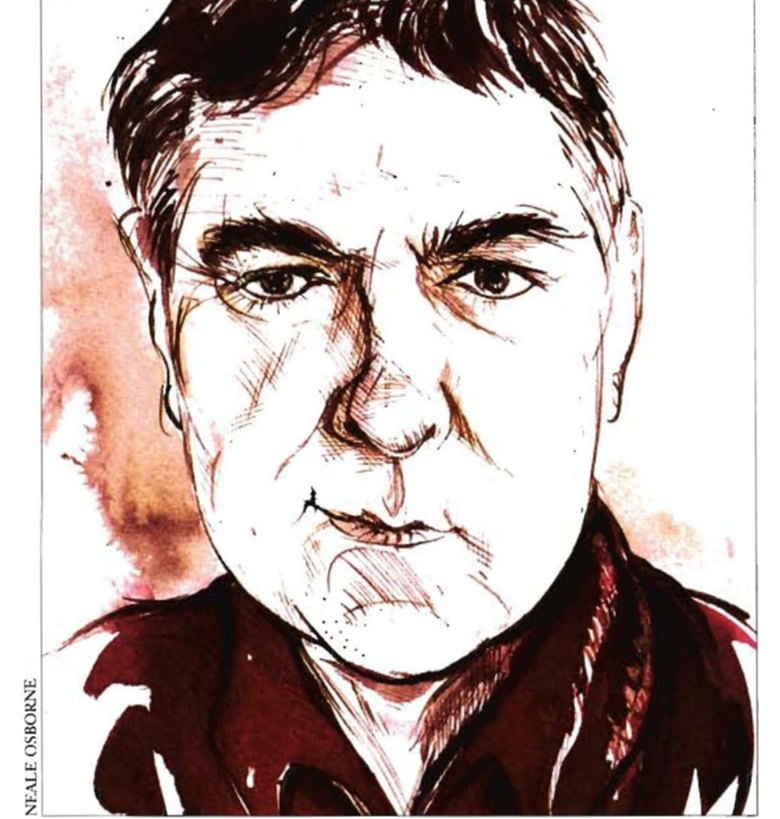John Sessions | My Music: ‘Beethoven is like Joyce – he takes the detritus of life and turns it into diamonds’
Wednesday, November 4, 2020
In an interview which originally appeared in the July 2004 issue of Gramophone, the late actor and satirist looks for the challenge of music

I used to buy Gramophone as a kid. I must confess that I used to cut out pictures of my favourite musicians, like Barenboim and Ashkenazy, and pin them on my walls alongside Jimi Hendrix and Eric Clapton a little bit later.
My brother was a sailor, and went away when I was 5 or 6. He was an autodidact, bought lots of books, and also a record player. When I was about 7 or 8 the first pieces I was aware of were the 1812 Overture, Schéhérezade and the Ritual Fire Dance. Every time he came home he would bring a new composer that he'd discovered. We wouldn't talk about it – he didn't go around waving his hands about it like someone in a Ken Russell movie, but he introduced me to them. Listening to Bruckner at 11 was like Keats's 'On First Looking at Chapman's Homer' – you cross the Atlantic with Beethoven, and then you've got this Pacific of all these other guys.
My parents weren't into music. I think my Dad was more interested in my doing maths, but in a touching way he was very happy I was getting a lot out of it. One day he was doing something in the loft, and put on Les Sylphides, and I got the impression that he was trying to find out 'What is this? 'What does John get out of it?' He was very intelligent, but was of the generation that he had to become an engineer rather than do something he wanted to do, which was to be a French teacher.
‘I'll never forget first hearing the Rite of Spring – I still think it's the most remarkable piece of music ever written’
They gave me my own record player when I passed the 11-plus, and my brother bought me the Klemperer recording of Schubert's Great C major. Later on I was told that Klemperer was too slow but I liked it. I tend to like somebody being a bit slow, rather than people who rush things. All that generation of conductors - Solti in Mahler, Karajan in Beethoven: they just do it the way I like.
I'll never forget first hearing the Rite of Spring – I still think it's the most remarkable piece of music ever written; it's more modern than anything. Nobody's caught up with Stravinsky yet – like late Beethoven. Beethoven's my kind of bloke, there's an uncertainty, the tripping over the furniture and the awkwardness, the 'galumphing' factor. It's like Joyce – he takes the detritus of life and turns it into diamonds. The slow movement of Op 132 is almost my favourite piece of music. You wonder, is there a Catherine Cookson sensibility about listening to it, making it into a kind of musical soap opera. But no – you don't let the biography get mixed up with it.
I played the viola for a couple of years at school but I was shiftless and useless, in love with the idea of being a musician but not prepared to put in the work. So I initially declined the offer to be chairman of the jury for BBC Young Musician of the Year, until the 'great honour' factor kicked in, and I did it. But I did feel like a cuckoo in the nest – the rest of the jury were following scores, and I can't even read Baa Baa Black Sheep.
In an interview afterwards I really went off on one about the current culture of inverted snobbery, associating anything intelligent or not immediately graspable with 'elitism'. Politicians and TV want to sprinkle hundreds and thousands of contemporary trendiness on it – it's better if the violinist has a ring in her nose, it's more important than if she can play it – though of course that doesn't apply to Nicola [Benedetti, this year's winner]. But she has the odd handicap of being incredibly beautiful, and that lends itself to the world of the 'babe cover', whereas she has earned her spurs in terms of the music you can't babe around with Szymanowski – it's closer to Berg than Sibelius. And I hope that doesn't confuse the way she is perceived.
It would be a scary world if every time you turned on the TV there was a documentary on Shostakovich. Even so, working in TV, it's depressing to see its destruction: BBC2 has turned into a junk shop. There's a lot going on that's exciting, but it has to be sold in such a banal way.
Interview by Peter Quantrill
















